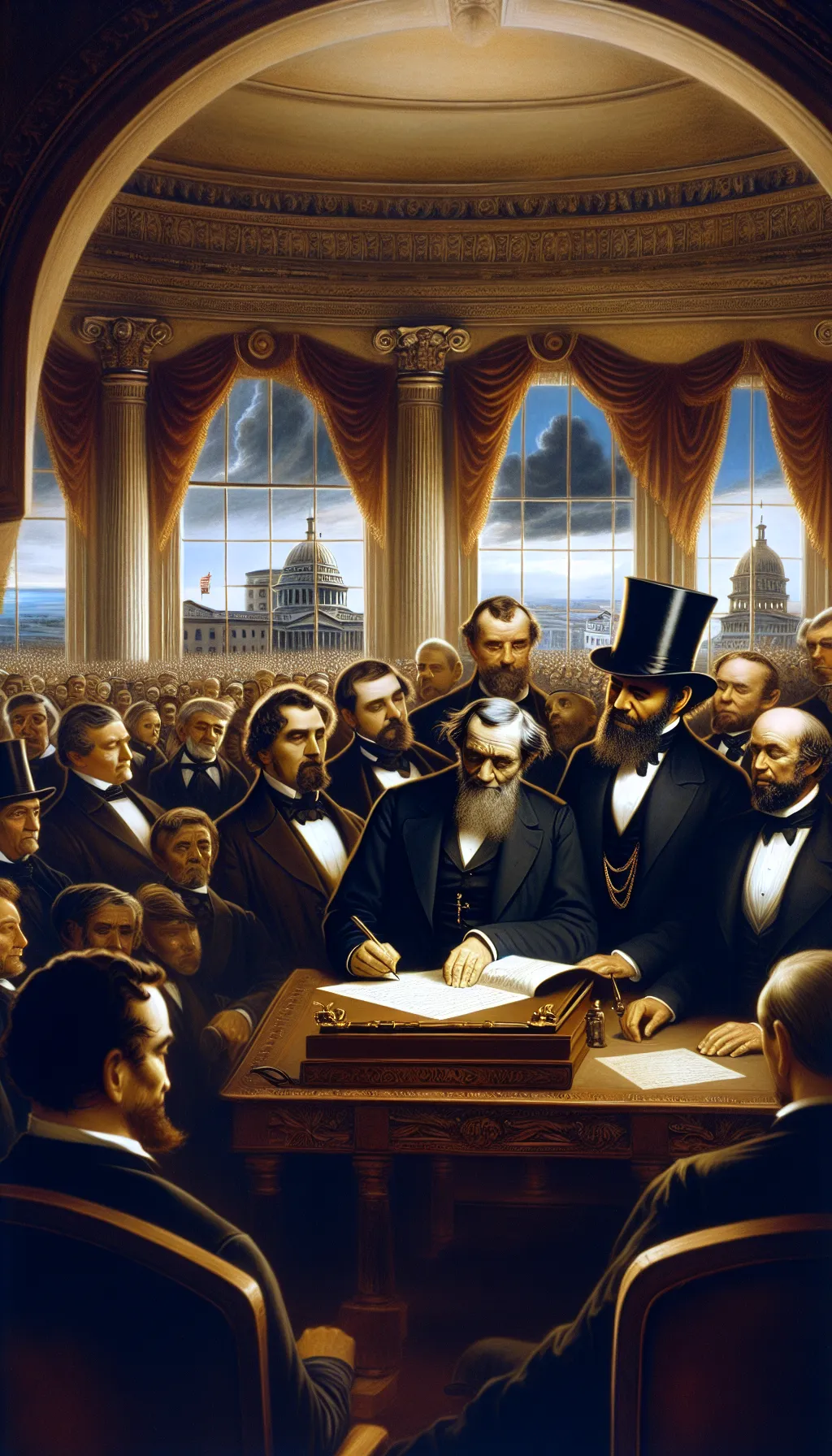United States – Freedom's Dawn: The Compensated Emancipation Act of 1862
TLDR;
- Event: On April 16, 1862, President Abraham Lincoln signed the Compensated Emancipation Act, freeing enslaved individuals in Washington, D.C., during the Civil War.
- Mechanism: The Act compensated loyal Union slaveholders approximately $300 (~$9,000 today) per enslaved person, though many claims were denied or reduced.
- Impact: It immediately freed about 3,100 enslaved people in D.C., setting a precedent for broader emancipation efforts, despite some facing forced apprenticeships.
- Legacy: The Act was a precursor to the Emancipation Proclamation (1863), marking a significant step toward ending slavery in the United States.
–
Story
The ink of President Abraham Lincoln’s pen had barely dried when the echoes of freedom began to ripple through the streets of Washington, D.C. It was April 16, 1862, a day that would mark the beginning of a new era in the nation’s capital. The Compensated Emancipation Act had been signed, a bold stroke against the chains of slavery.

In the midst of the Civil War, Washington, D.C., stood as a paradox—a beacon of liberty shadowed by the blight of slavery. Lincoln, a president navigating the treacherous waters of political reality with a long-held support for gradual, compensated emancipation, saw the Act as a pragmatic solution. Influenced by pressure from Radical Republicans and abolitionists in Congress, the Compensated Emancipation Act was a legislative maneuver that offered a glimmer of hope.
The Act was revolutionary in its approach. It declared the end of slavery in the capital, offering compensation to slaveholders who could prove their loyalty to the Union and petition for it, though many claims were denied or reduced. The average compensation was about $300 per enslaved person (equivalent to ~$9,000 today), a sum critics argued unfairly prioritized slaveholders’ economic interests. For the 3,100 enslaved individuals in Washington, D.C., a number that had already declined sharply from ~6,000 in 1800 due to gradual manumission and sale to the Deep South, it was a long-awaited dawn, though they faced the requirement to prove their freedom or risk being forced into apprenticeships, a loophole that allowed some exploitation to continue.
Yet, the Act was more than a local decree; it was a harbinger of the broader emancipation to come. It set a precedent, a moral and political statement that would echo through the halls of Congress and across the battlefields of the Civil War. Unlike the Emancipation Proclamation (1863), which was a wartime measure targeting Confederate states and excluded border states and parts of the South under Union control, the D.C. Act was immediate and universal within the district.
As the news spread, jubilation mixed with uncertainty. Former slaves faced the daunting task of building new lives in a city still grappling with its identity. For Lincoln, it was a step toward the greater goal of national emancipation, a vision that would culminate in the Emancipation Proclamation.
The Compensated Emancipation Act was a pivotal moment, a testament to the power of legislation to change lives and alter the course of history. It was a reminder that even in the darkest times, the light of justice can break through, albeit with complexities and lingering inequalities.
–
| Would a different approach to emancipation have changed the course of American history? |